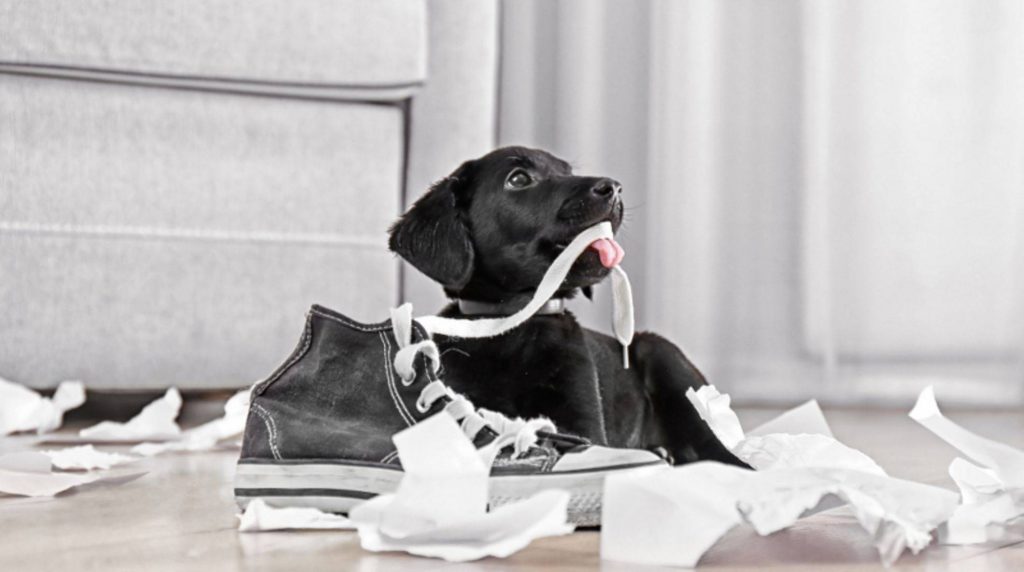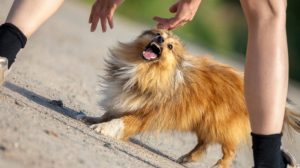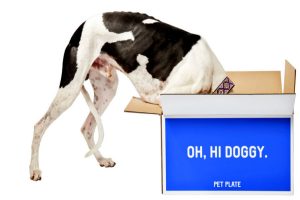Hyperactivity in the dog is not clearly defined as a neurological disease or the like. Several reasons why a four-legged friend gets upset by the slightest stimuli are challenging to train and does not want to switch off.

From the overly hectic greeting to freaking out at the slightest noise to pulling on the leash, barking for hours and seeming unteachable, the symptoms of hyperactivity in dogs can be very diverse. If you also have an overactive dog at home, you should know the causes to tackle the correct treatment of the behavioural problems in the next step.
Hyperactivity in dogs: lack of activity
Good occupation of a dog is decisive for its well-being. Physical and mental activity is essential for a four-legged friend to be balanced and happy. Especially the dog breeds that need a lot of work – such as huskies or border collies and various working dogs – suffer from under-challenge and quickly show behavioural problems such as hyperactivity. A dog that is not adequately exercised will then usually act out its urges in other ways, such as destructiveness, aggressive behaviour, or constant restlessness. Therefore, always pay attention to species-appropriate employment. It is best to find out about the requirements of the respective dog breed and job opportunities such as dog sports before you buy a dog.
Mistakes in rearing and upbringing as causes
Errors in early dog training can have a decisive influence on whether a dog later suffers from hyperactivity or not. A large part of this is about frustration tolerance: If a dog learns that all its needs and demands are satisfied and fulfilled as quickly as possible, it never has the experience that something doesn’t go according to its muzzle. If this experience occurs later in life, stress quickly sets in, which can degenerate into hyperactivity in the medium term.
Puppy age also lays the foundation for distinguishing between what is essential and what is unimportant and for “learning” concentration. This is mainly through education. It is not easy for puppies to classify what is important and trivial. A leaf blowing by is initially just as exciting as a jogger running by. This so-called uncontrolled sensitivity to stimuli must be controlled with the help of consistent and species-appropriate training. A simple example: If another dog walks by and your puppy stays seated, they get a dog treat from the owner. If a leaf blows by, there is no reward. In this way, your four-legged friend remembers that the other is more important than the leaf and, at best, generally loses interest in walking through the roof when a leaf blows by.
Genetic and physiological causes of hyperactivity in dogs
Hereditary factors can also influence whether or not a dog exhibits hyperactive behaviour. Some dog breeds have been bred to have a high sensitivity to stimuli, such as the Belgian shepherd dog, which was and is used as a guard dog, among other things. The risk of a breed-related, stimulus-sensitive, active dog becoming hyperactive is significantly higher than in other dog breeds. Incorrect dog training has an even more severe effect here.
The causes of hyperactivity in dogs can also go back to the womb. If a mother dog is exposed to a lot of stress during pregnancy, for example, due to poor breeding conditions or life on the street, this will likely also affect the unborn pups – a low-stress tolerance and a kind of innate fear can be the result.
In addition, diseases, improper dog nutrition and other physiological causes can also come into play. Chronic stress, such as that caused by illness, can lead to hyperactivity. Clarify the reasons with your veterinarian to be able to start the appropriate treatment.







